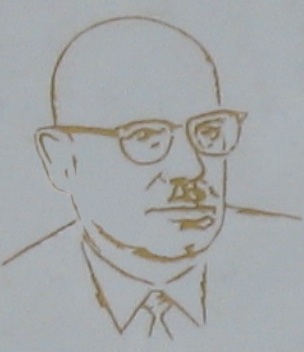Top Qs
Timeline
Chat
Perspective
Mark Krein
Soviet mathematician From Wikipedia, the free encyclopedia
Remove ads
Mark Grigorievich Krein (Ukrainian: Марко́ Григо́рович Крейн, Russian: Марк Григо́рьевич Крейн; 3 April 1907 – 17 October 1989) was a Soviet mathematician, one of the major figures of the Soviet school of functional analysis. He is known for works in operator theory (in close connection with concrete problems coming from mathematical physics), the problem of moments, classical analysis and representation theory.
This article includes a list of general references, but it lacks sufficient corresponding inline citations. (May 2016) |
Remove ads
He was born in Kyiv, leaving home at age 17 to go to Odesa. He had a difficult academic career, not completing his first degree and constantly being troubled by anti-Semitic discrimination. His supervisor was Nikolai Chebotaryov.
He was awarded the Wolf Prize in Mathematics in 1982 (jointly with Hassler Whitney), but was not allowed to attend the ceremony.
David Milman, Mark Naimark, Israel Gohberg, Vadym Adamyan, Mikhail Livsic and other known mathematicians were his students.
He died in Odesa.
On 14 January 2008, the memorial plaque of Mark Krein was unveiled on the main administration building of I.I. Mechnikov Odesa National University.
Remove ads
See also
- Tannaka–Krein duality
- Krein–Milman theorem and Krein–Rutman theorem in functional analysis
- Krein space
- Krein's condition for the indeterminacy of the problem of moments
External links
- O'Connor, John J.; Robertson, Edmund F., "Mark Krein", MacTutor History of Mathematics Archive, University of St Andrews
- Mark Krein at the Mathematics Genealogy Project
- INTERNATIONAL CONFERENCE Modern Analysis and Applications (MAA 2007). Dedicated to the centenary of Mark Krein
- Mark Krein at Find a Grave
Wikiwand - on
Seamless Wikipedia browsing. On steroids.
Remove ads

